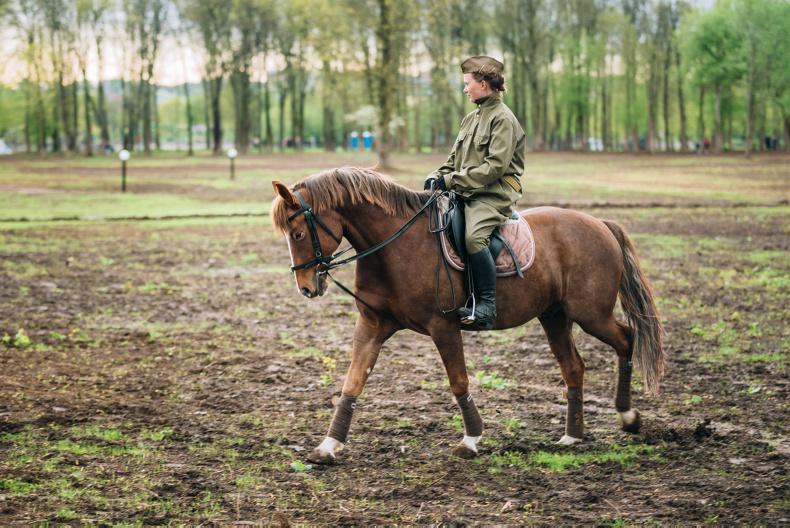Ireland’s neutrality, British intelligence and shipping blockades all featured heavily during legal proceedings regarding the sale of Irish Sport Horses through Spain to the Axis armies during World War II. Supposedly bought as show jumpers, these equines were in fact destined to pull ordinance or cart supplies for German and Italian front line troops.
The use of horses in World War I has been well documented but because of the increased mechanisation of warfare during the intervening years less has been said about their role in World War II. However, both Germany and Italy still continued to use substantial traditional horse power in their operations. So shipments from breeding countries like Ireland were needed. It is one of those consignments that became the subject of an internationally important litigation in the High Court and Supreme Court here in 1944.
Law Society Gazette
It is thanks to a superbly researched article by Dr Barry Whelan in the May 2020 issue of the Law Society Gazette that I learned of these unique court proceedings. Just 12 weeks prior to the D Day invasion of 6 June 1944 a military officer from General Franco’s ‘neutral’ but pro-Aixis Spanish regime, Colonel de las Morenas, reserved spaces for 52 so called Irish show jumpers on the Saorstat and Continental Shipping Company’s ship SS Assaroe which was due to sail on 24 March 1944.
However, at this point British intelligence officers that had been monitoring shipping between Ireland and Spain across waters essential to the planned D-Day invasion, stepped in and refused to issue what was called a ‘navicert’ for the horses. From the British point of view, the 52 Irish horses were for military and not sporting use. The British felt that they were more likely to be pulling German guns to the Western Front than competing in a show jumping competition.
The Spanish officer was now in trouble since his contract with the shipping company stipulated that if he did not fill the spaces he had reserved on the SS Assaroe he was still libel for paying the transport costs which would in today’s money amount to about €100,000.
Morenas refused to pay and was then sued by Saorstat and Continetal. He appealed to the High Court where he lost. At this stage the 52 horses had become an international incident, so the Spanish Colonel further appealed to the Supreme Court. He lost again. So he was left with 52 Irish horses and a hefty bill.
What happened to the horses we do not know but Morenas appears to have lost his job since he stayed in Ireland until the war was over.






 This is a subscriber-only article
This is a subscriber-only article










SHARING OPTIONS: